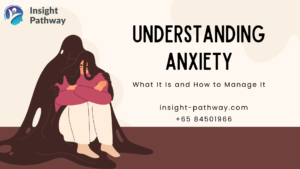In today’s fast-paced world, mental wellness has become an essential part of leading a balanced life. Despite the growing awareness, many still hesitate to seek therapy, often due to stigma and misconceptions. Addressing this stigma is vital to empowering individuals to prioritize their mental health, and that starts by understanding the benefits of psychotherapy, counselling, and the role of psychotherapists and counsellors in supporting emotional well-being.
Why the Stigma Exists
Outdated notions about mental health are frequently the source of the stigma associated with therapy. Many people think that therapy is only necessary for people who are experiencing a crisis, or worse, they think it shows weakness. People avoid getting treatment when they could most benefit from it because of these beliefs. This stigma is especially common in societies where mental health issues are viewed as personal affairs best left to one’s own hands or where seeking treatment is seen as a sign of weakness.
However, psychotherapy and counselling are not just for crises—they offer tools for personal growth, stress management, and building resilience. They provide a safe space to explore thoughts, emotions, and behaviours in a non-judgmental environment, allowing individuals to understand themselves and their challenges better. Seeking therapy is a proactive approach to mental wellness that more people should feel empowered to take.
What is Psychotherapy?
Psychotherapy involves working with a trained psychotherapist to explore and resolve deep-seated emotional issues. It is often long-term, focusing on patterns of thinking and behaviour that may be contributing to emotional distress. Through psychotherapy, individuals learn how to process trauma, manage anxiety, and build healthier relationships with themselves and others.
The Role of Counselling
Counselling is frequently more solution-focused and intended to solve particular problems or obstacles, whereas psychotherapy concentrates on long-term emotional recovery. Counselling is the best option for people who are facing urgent issues including marital problems, work-related stress, or life transitions. Counselling sessions provide assistance, direction, and useful tactics to deal with these difficulties.
Why Seeking Therapy is a Sign of Strength
One of the most damaging myths about therapy is that seeking help means admitting weakness. On the contrary, acknowledging the need for support takes tremendous courage. Therapy is not about being “broken” or “incapable”; it’s about recognizing that everyone faces challenges and that professional help can provide the tools needed to overcome them.
Being in therapy shows a dedication to wellbeing and personal development. Therapy serves to build the mind, much like going to the gym helps people strengthen their bodies. People who work with psychotherapists and counsellors gain the understanding, coping skills, and emotional resources necessary to face life’s challenges head-on.
Breaking the Cycle of Silence
The fear of being judged is another deterrent to seeking counselling or psychotherapy. When people find out they are going to therapy, they frequently worry about what other people will think. This worry can lead to a cycle of silence in which people put off getting help to keep up appearances, even when they may be having internal difficulties.
However, breaking the stigma starts with open conversations about mental wellness. When people share their experiences with therapy, it helps to normalize the process and reduce the shame that others might feel. The more that individuals and communities acknowledge the value of counselling, the less isolating it becomes for those in need of support.
At Insight Pathway, the approach to mental wellness focuses on creating an accepting and inclusive environment. Through psychotherapy and counselling, clients are given the opportunity to break free from the silence, explore their challenges, and develop the skills necessary to lead healthier, more balanced lives.
The Transformative Power of Therapy
The benefits of therapy extend far beyond resolving immediate emotional struggles. It empowers individuals to develop self-awareness, improve relationships, and make more mindful life choices. It also provides a sense of validation, reminding individuals that their experiences and emotions are valid, no matter how overwhelming they may feel.
Conclusion
Breaking the stigma around seeking therapy is a crucial step in promoting mental wellness. At Insight Pathway, the dedicated team of psychotherapists and counsellors is committed to helping individuals embrace therapy as a tool for empowerment, healing, and personal growth. Seeking counselling or psychotherapy is not a sign of weakness—it is a courageous step towards achieving mental well-being.
By opening the door to therapy, you are choosing to invest in your mental health and overall quality of life. Everyone deserves a safe space to grow, heal, and thrive, and that is what therapy offers.




